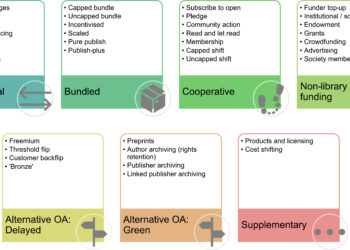
- Image via Wikipedia
There are many reasons why a publisher might be reluctant to add interactive community-focused components, like user-generated content, to their online offerings.
Often it’s because STM publishers provide high-quality, vetted content meant for a targeted audience, usually an expert.
Contributions from a non-expert could not only impugn the validity and credibility of their content offering, but might also frustrate the very expert audience and content contributors on whom they depend.
But since when has community meant everyone?
According to the American Heritage Dictionary, a community is:
A group of people having common interests … A group viewed as forming a distinct segment of society.
Community is a subset of the population.
That subset may be self-selected (by preference or interest) or selected by some external criteria (professional certification or accomplishment).
By definition, communities are exclusive groups.
Publishers can limit participation in their online communities. They can set up rules, guidelines, or verification steps to make sure they’re fostering a community of experts.
They could also start with people they know: editorial boards, current reviewers and contributors, or authors.
Another tactic is to permit known or “certified” participants to contribute, but also allow others to view the conversations or ask questions, perhaps creating a hybrid of experts and interested non-experts with varying roles.
For some topics, a publisher might even decide to let the community manage itself, not limiting participation at all, but allowing natural selection to run its course.
In any case, the question should no longer be whether interactivity and community features are important. Instead, we should be figuring out how we can participate in, or foster our own, community in a way that enhances the usefulness of our content.
Discussion
2 Thoughts on "Since When Does Community Mean Everybody?"
The big question is ‘how open do you want to be’.. its something publishers seem to wring their hands about all the time…Only way to find out is to jump in and try it and discover our own comfort level. I think that is what you are saying and we are violently in agreement
![Reblog this post [with Zemanta]](http://img.zemanta.com/reblog_e.png?x-id=b433eccf-abf4-4004-b459-2d4576ee8f0f)


